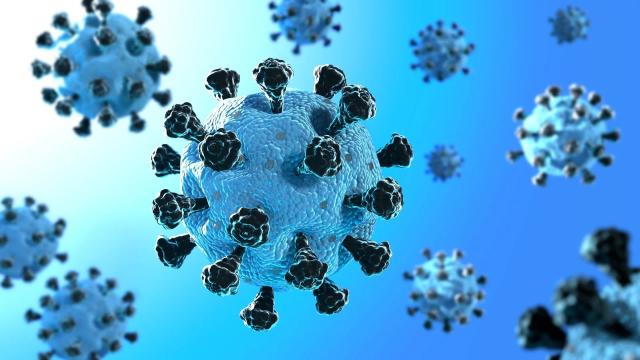Press Release: The Lancet COVID-19 Commission Issues a Priority Statement
February 22, 2021 - The Lancet COVID-19 Commission published a priority statement in the Lancet outlining the urgent actions needed to address the COVID-19 pandemic and the associated financial, economic, and humanitarian fallout and to rebuild an inclusive, fair, and sustainable world. In the priority statement, the Lancet COVID-19 Commission calls for three urgent actions, all of which require enhanced global cooperation: (1) all regions with high new infection rates should intensify measures to contain community transmission; (2) governments should urgently and fully fund the WHO and the Access to COVID-19 Tools (ACT) Accelerator, including the vaccines pillar, COVAX , for rapid global vaccinations; and (3) G20 countries should empower the International Monetary Fund (IMF) and multilateral development banks to increase the scale of financing and debt relief.
The Commission highlights the fact that the timely supply of vaccines to lower-and middle-income countries (LMICs) through COVAX is in question. More funding would allow COVAX to incentivize expanded production and delivery of vaccine doses for the LMICs. Financing is the core issue of the COVID-19 response, and the Commission members highlight that government outlays are more urgent than ever to provide vital social services, replacements for lost incomes, and public health financing. The Commission recognizes that most LMICs lack the fiscal space for such emergency spending and therefore they welcome a new Special Drawing Rights (SDR) allocation to supplement the international reserves of IMF member states and support countries facing balance of payment shortfalls in the context of COVID-19. The Commission recommends that multilateral development banks should be supported to ramp up long-term financing of infrastructure to ensure that COVID-19 does not derail the achievement of the Sustainable Development Goals.
The priority statement is complemented by the longer overview statement , in which the members of the Commission provide greater detail about the recommendations highlighted in the priority statement, including specific recommendations for implementing Nonpharmaceutical Interventions, inclusive and rapid vaccine deployment, and global cooperation for emergency financing. They also discuss the needs of particular groups facing vulnerability and the social and psychological consequences of COVID-19 and emphasize the need to strengthen health systems for a transformative, inclusive, green and digital economic recovery.
The priority statement and overview statement provide an update on the work of the Lancet COVID-19 Commission and can be used by governments, civil society, multilateral development banks, and UN organizations to advise for sustainable and equitable policies for financial support, suppression of the COVID-19 virus, vaccine deployment, addressing humanitarian crises such as food insecurity and school and workplace closures, the protection of vulnerable populations, and the inclusive green and digital economic recovery.
About the Lancet COVID-19 Commission
The Lancet COVID-19 Commission was launched on July 9, 2020, to assist governments, civil society and UN institutions in responding effectively to the COVID-19 pandemic. The Commission aims to offer practical solutions to the four main global challenges posed by the pandemic: suppressing the pandemic by means of pharmaceutical and non-pharmaceutical interventions (NPIs); overcoming humanitarian emergencies, including poverty, hunger and mental distress caused by the pandemic; restructuring public and private finances in the wake of the pandemic; and rebuilding the world economy in an inclusive, resilient and sustainable way that is aligned with the Sustainable Development Goals (SDGs) and the Paris Climate Agreement.
The Commission includes Commissioners who are leaders of health science and delivery, business, politics, and finance from across the world and are working together towards a shared and comprehensive outlook on how to stop the pandemic and how best to promote an equitable and sustainable recovery.
About SDSN
The UN Sustainable Development Solutions Network (SDSN) mobilizes scientific and technical expertise from academia, civil society, and the private sector to support practical problem solving for sustainable development at local, national and global scales. The SDSN has been operating since 2012 under the auspices of the UN Secretary-General. The SDSN is building national and regional networks of knowledge institutions, solution-focused thematic networks, and the SDG Academy, an online university for sustainable development.
Media Contacts
Cheyenne Maddox
Outreach and Events Manager, SDSN
Juliana Bartels
Special Assistant to the Director
Center for Sustainable Development
The Earth Institute, Columbia University
